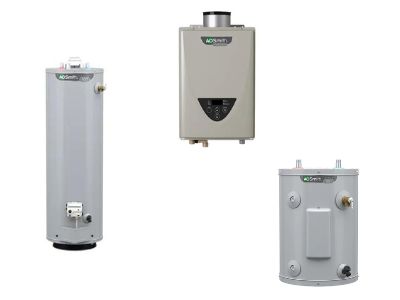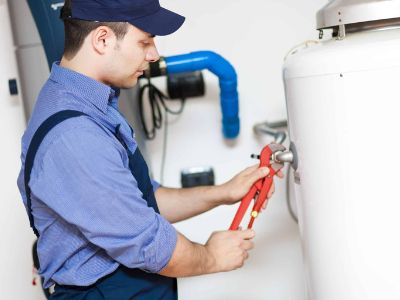
Water Heaters 101: A Beginner’s Guide
In most homes, budgets are a thing to be protected. With the cost of living rising, the price of everything has increased. That means that homeowners need to find every opportunity to cut their expenses so they can afford everything it takes to keep their families happy and healthy. Looking at the home’s plumbing can be a good place to find budget cuts for some financial relief.
In most homes, water heaters account for multiple percentage points of a monthly energy budget to pay for their operation. When water heater repairs sneak up on the family, it can kill the budget for a few months, not to mention the cost of an unexpected replacement if the water heater damage is too far gone. Take some advice from local plumbers and learn about water heater basics and how to reduce energy and repair costs for the water heater. Taking this advice can even increase the longevity of this precious appliance.
Different Types of Residential Water Heaters
- Tank Water Heaters: These are conventional water heaters that use a large storage tank for heating and storing hot water. Most homes are built to accommodate these devices, so chances are good that this is the style in any given house.
- Tankless Water Heaters: New technology has given rise to a new style of water heater that offers an endless hot water supply on demand. Tankless water heaters typically cost more upfront, but they make up for it in energy savings by not having to keep water stored in a tank hot.
After homeowners determine which type of water heater they have or want, they need to determine the energy source. This boils down to two main choices:
- Gas Water Heater: Gas water heaters come in tankless and conventional designs. They heat water fast and efficiently with a burner but are subject to increasing fossil fuel costs.
- Electric Water Heater: Electric water heaters use electric heating elements to heat the water. Electric water heaters also come in tankless and conventional designs.
Steps for Water Heater Maintenance
- Drain and flush the tank
- Check the anode rod and replace it if necessary
- Check for leaks and damage
- Look for signs of corrosion
- Verify safety devices are working
Common Signs a Water Heater Needs Repair
When water heaters need repairs, it can lead to a loss of hot water in the home, or the problem can go unnoticed if homeowners aren’t aware of the other signs. If neglected, the problem will worsen until a catastrophe happens or the damage is too severe, requiring a replacement. Some of the signs to watch out for that indicate a water heater needs repairs are:
- Leaks
- Higher than normal utility bills
- Corrosion
- Discolored or smelly water
- Thumping noises
- Low volumes of hot water
When these signs are noticed, homeowners should call a plumber immediately. A qualified plumber can help restore service to the water heater before the damage becomes systemic.
About Towers Plumbing
Towers Plumbing has over 75 years of experience serving the residents of Murray, UT, and the surrounding areas. They provide hassle-free service, 24-hour emergency repairs, and fast turnarounds. Call them today for water heater services in Murray, UT.


